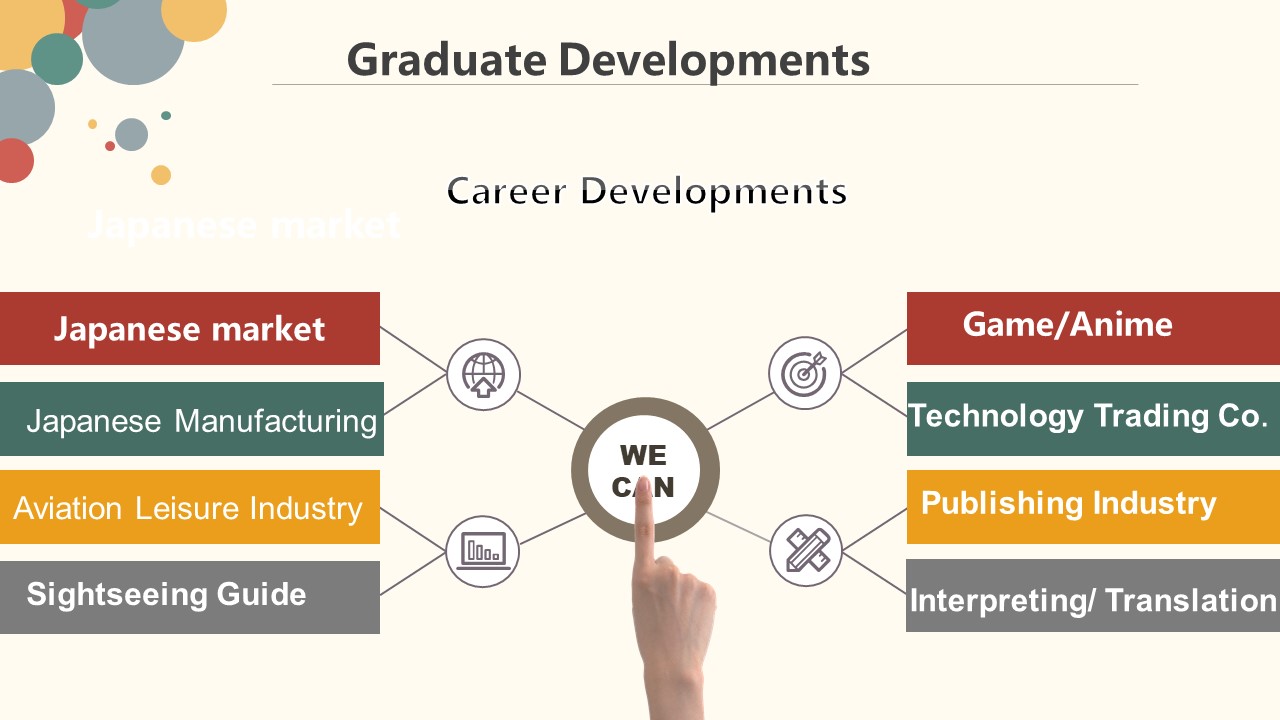Brief History
Brief History
Developments / Accomplishments
The first department of Applied Japanese in Taiwan, our department was founded in 1996. With clearly defined goals, professional and enthusiastic faculty, as well as customized teaching materials for students, the department emphasizes cultural competency as well as technological and equipment skills. For undergraduates, the focus is on cultivating graduates who can serve in Japanese administrative capacity and as Japanese teachers. Graduates' performances in the industries have been outstanding and highly praised. The features of this department are summarized below:
(1) Focus on the cultivation of talents for Japanese businesses and education;
(2) Market-oriented course design, integrating Japanese and professionalism;
(3) Professional and technological teaching, with many opportunities for student exchanges, achieving internationalization;
(4) Excellent environment featuring Japanese culture and digital equipment for education; and
(5) Students achieving outstanding performances in various competitions and graduates being favored by businesses as meeting needs for related talents.

